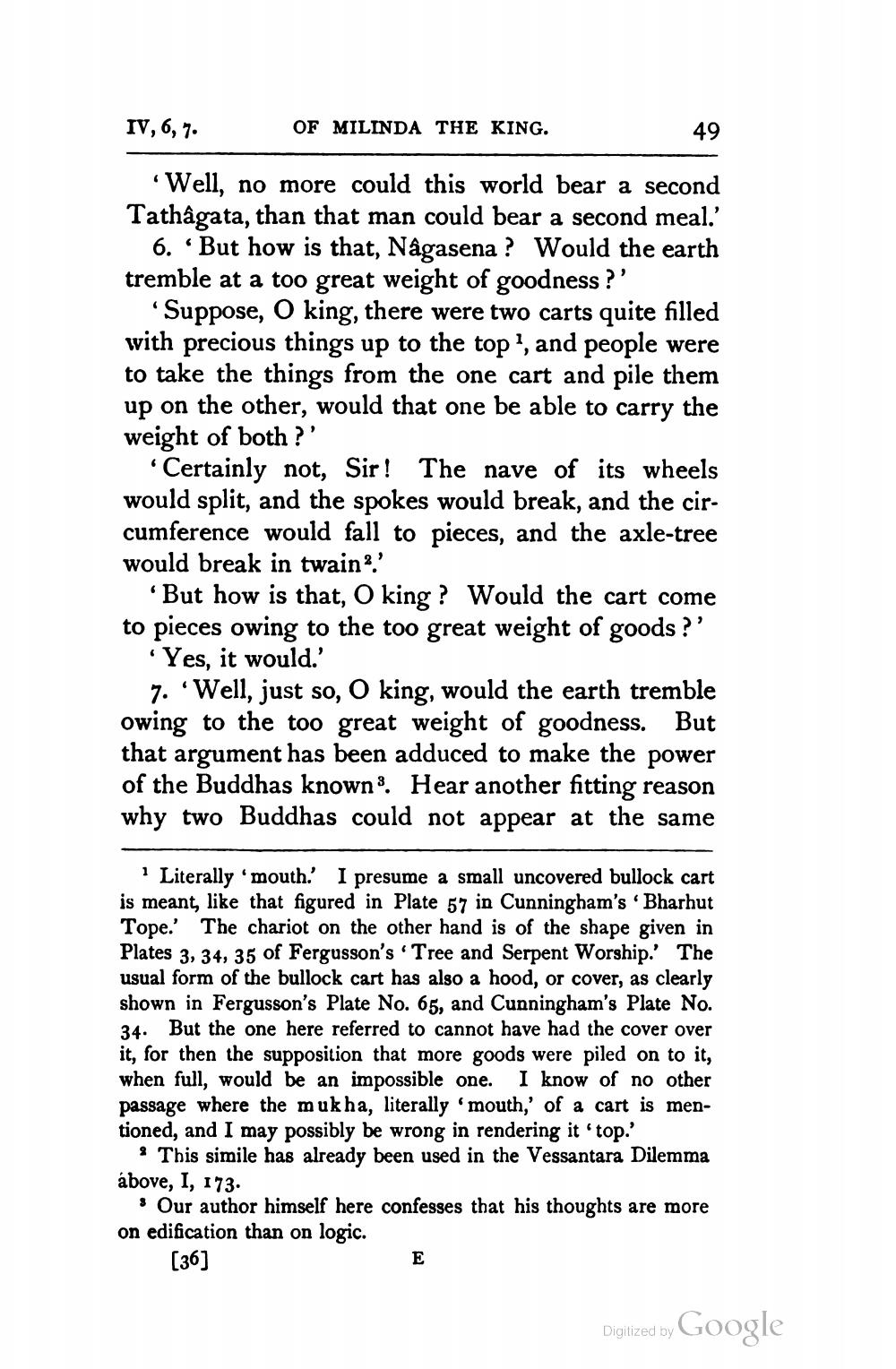________________
IV, 6, 7.
'Well, no more could this world bear a second Tathagata, than that man could bear a second meal.' 6. But how is that, Nâgasena? Would the earth tremble at a too great weight of goodness?'
'Suppose, O king, there were two carts quite filled with precious things up to the top 1, and people were to take the things from the one cart and pile them up on the other, would that one be able to carry the weight of both?'
'Certainly not, Sir! The nave of its wheels would split, and the spokes would break, and the circumference would fall to pieces, and the axle-tree would break in twain".'
OF MILINDA THE KING.
'But how is that, O king? Would the cart come to pieces owing to the too great weight of goods?' 'Yes, it would.'
49
7. 'Well, just so, O king, would the earth tremble owing to the too great weight of goodness. But that argument has been adduced to make the power of the Buddhas known3. Hear another fitting reason why two Buddhas could not appear at the same
1 Literally 'mouth.' I presume a small uncovered bullock cart is meant, like that figured in Plate 57 in Cunningham's 'Bharhut Tope.' The chariot on the other hand is of the shape given in Plates 3, 34, 35 of Fergusson's 'Tree and Serpent Worship.' The usual form of the bullock cart has also a hood, or cover, as clearly shown in Fergusson's Plate No. 65, and Cunningham's Plate No. 34. But the one here referred to cannot have had the cover over it, for then the supposition that more goods were piled on to it, when full, would be an impossible one. I know of no other passage where the mukha, literally 'mouth,' of a cart is mentioned, and I may possibly be wrong in rendering it 'top.'
This simile has already been used in the Vessantara Dilemma ábove, I, 173.
Our author himself here confesses that his thoughts are more on edification than on logic.
[36]
E
Digitized by
Google




